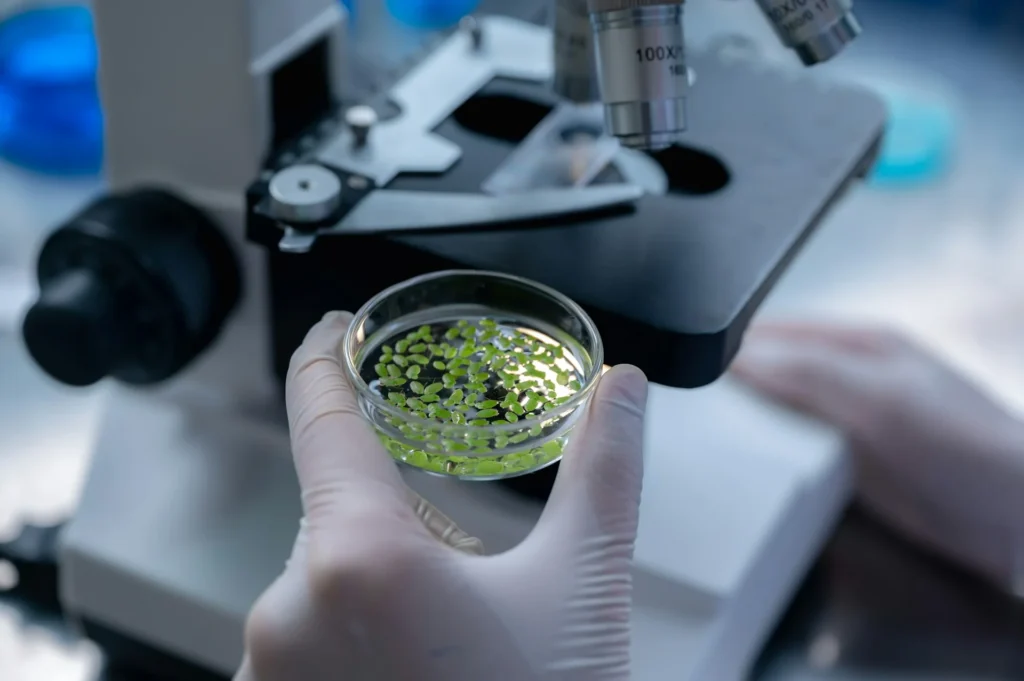In a global context where environmental sustainability and public health are central issues, public policies are called upon to play a crucial role in promoting sustainable consumption and production patterns. Among various initiatives, support for plant protein production and consumption emerges as a strategic priority for institutions in line with sustainability goals.
The shift to a diet richer in plant proteins is not only a response to growing environmental concerns, but also offers important public health benefits. However, for this shift to take place in a meaningful way, an integrated approach involving a variety of sectors is needed, from raising public awareness to changing existing regulations and supporting research and innovation.
Awareness and information campaigns
A crucial first step in promoting plant-based protein consumption is to organize awareness campaigns that educate the public about the health and environmental benefits of these alternatives. Through the use of traditional and social media, administrations can reach a wide audience, correcting misinformation and promoting a more knowledgeable and informed food culture.
Various studies have analyzed strategies to promote plant-based diets, such as changes in food outlets, attractive labels, and price promotions.
Economic incentives and tax breaks
In parallel, it is crucial to offer economic incentives to stimulate the production and distribution of plant proteins. Subsidies and tax breaks can indeed reduce costs for producers, making these foods more accessible to consumers. Such incentives, accompanied by regulatory changes, could transform the food supply in key public settings such as school, hospital and corporate canteens, ensuring the availability of plant-based meals on a large scale. An interesting example is the Plant-Based Universities, which originated in the United Kingdom, promoting a transition to all-vegetable menus in university canteens. This initiative has received support from many academics, who highlight how reducing the consumption of meat and animal by-products in canteens can help combat the climate crisis. Several university canteens have introduced all-vegetarian meals: this is the case at the University of Berlin, Leipzig and Munich, the Universities of Cambridge and Oxford as well as Amsterdam and Gothenburg.
Education and training: investing in the future
Education plays a crucial role in changing eating habits. By integrating lessons on sustainable nutrition into school curricula and involving students in cooking workshops, a new generation can be formed that is more aware of the importance of plant proteins. This kind of education not only promotes healthier food choices, but also helps build a culture of sustainability that could have positive repercussions for decades.
Research and innovation: engines of change
No less important is support for research and development of new protein sources. Adequate funding to improve existing production processes and develop increasingly competitive and attractive alternatives is essential to the long-term success of this food transition. In this context, public-private collaborations can accelerate innovation in the plant protein sector. Examples of EU-private collaborations include ProFuture, which creates innovative microalgae foods and feeds; NextGenProteins, which works on converting biomass into protein; SUSINCHAIN, which focuses on sustainable insect value chains; and Smart Protein, which aims to produce a new range of sustainable, nutritious and affordable protein-rich foods.
Government departments should foster partnerships with food companies to develop and promote new products, perhaps through dedicated events and fairs that strengthen the link between producers and consumers. In this regard, Amsterdam has distinguished itself as the first capital of the European Union to officially support the Plant- Based Treaty a global initiative that aims to combat the climate emergency through the promotion of plant-based diets.
Public procurement and family support
Finally, government sustainable purchasing policies should integrate the promotion of plant-based proteins. Prioritizing plant-based food suppliers for canteens and catering services not only reduces environmental impact, but is also a tangible sign of commitment to greater sustainability. Consumer subsidy programs, particularly for low-income households, can play a key role in making plant-based products accessible to all.
Conclusion: a shared commitment to a sustainable future
The promotion of plant proteins requires coordinated and multifaceted action by public institutions. From information campaigns to economic incentives, through education and support for research, each initiative is a key piece in creating an environment conducive to healthier and more sustainable food. Only through a shared commitment will it be possible to achieve a food transition that will have a positive impact on both public health and our planet.







